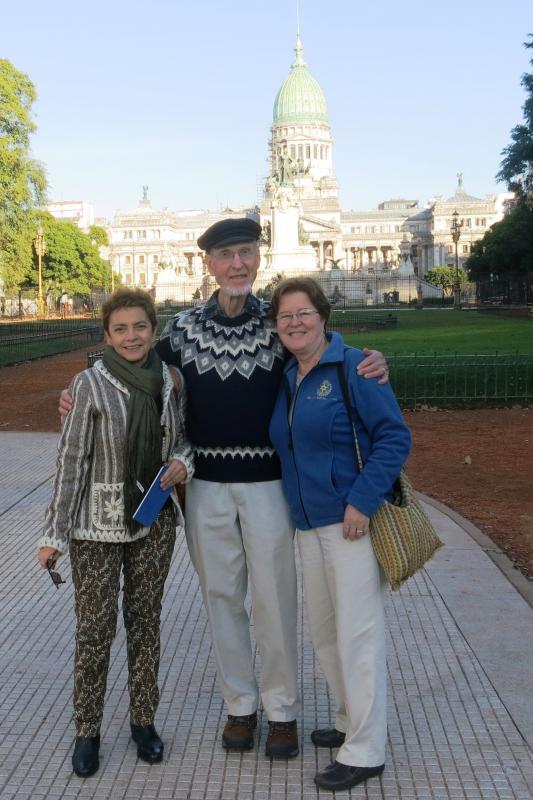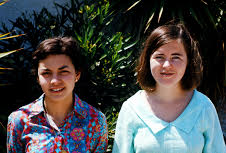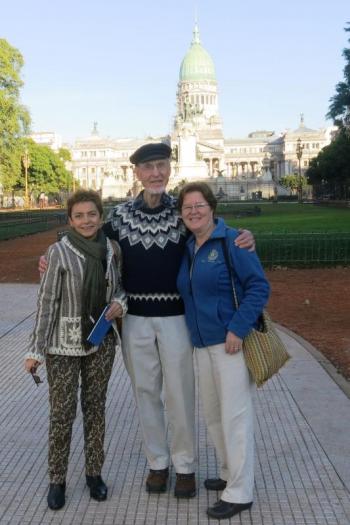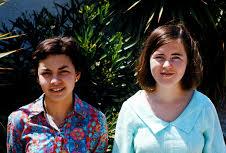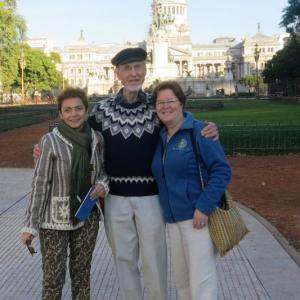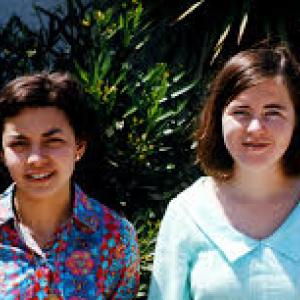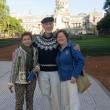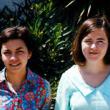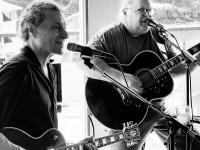AFS ‘sisters’ reunite in Argentina
It took 44 years for Marti Helman to see her American Field Service (AFS, now AFS-USA) “sister,” Celia, in her native Argentina, but the two were reunited in Buenos Aires last month to renew their friendship.
Helman had applied to AFS while in high school in 1971 in Alameda, California, but was turned down.
“I would have liked to have gone,” she said.
Her two older sisters had already left her parental house, so at 16, Helman thought it would be nice to have an AFS student stay with them.
"We were just rattling around the house," Helman said.
Her parents, Paul and Jane Peak, agreed. Paul Peak was a career Coast Guardsman. The family had moved around eight times since Helman had started school.
Celia Brosio Patten (married surname) was assigned to the family.
Marti’s mother was concerned that she might have to cook in accordance with Celia’s Catholic dietary restrictions, including fish on Friday.
“She (Celia) was told that all that Americans ate was TV dinners," Helman said. "My mother settled on making a tuna casserole."
Marti and Celia attended the same large high school in Alameda. Often Celia was treated by students as if she came from a ranch on the pampas and not from an upper middle-class family in sophisticated Buenos Aires. Celia often returned with a snappy wisecrack just to set her classmates right, recalled Marti.
“We went everywhere on our bicycles. We became sisters," said Helman, who conceded they also squabbled like sisters.
The family took Celia to see many of the sights, including Yosemite, San Diego, and even a trip to Mexico City.
Upon graduation, the sisters quickly went their own ways. Marti went off to college and Celia back to her home.
"Everything was coming to an end,” Helman said.
The two corresponded over the years and actually met occasionally. Celia, now a doctor, visited the United States every decade. The only gap was when Argentina fell under a dictatorship starting in 1978.
"She told us not to write. It was dangerous to correspond with Americans,” Helman was told.
Ten years later when the government changed, they resumed correspondence. In May, Helman and her husband, Frank, had the chance to travel to South America. They decided this was a good time to visit Celia. Although Celia and her husband, both doctors, were living fairly comfortably, the devaluation of currency had exhausted their savings.
The Helmans were steered away from the tourist traps and were brought to some of the best out-of-the-way restaurants and clubs to see the tango performed as the local people experience it. They were also taken out of the city to the pampas to enjoy rancher food.
“It was wonderful. We ate steak every night," Helman said.
The most important thing Helman took away from the trip was reliving her teenage years through the eyes of Celia. At one point, Marti mentioned to Celia that her father had become vague in his later years.
"He was always vague," responded Celia. Thinking about it now, Marti said she had to agree.
As for the changes Celia had gone through while an AFS student, her parents found her far more independent after she returned to Argentina.
For Marti the exchange was important because she began to understand how those from other countries perceive Americans.
"It taught me how to look at our culture through other than American eyes,” Helman said.
Helman and her husband, Frank, are active Rotarians and manage a philanthropic foundation in Boothbay Harbor.
Event Date
Address
United States

